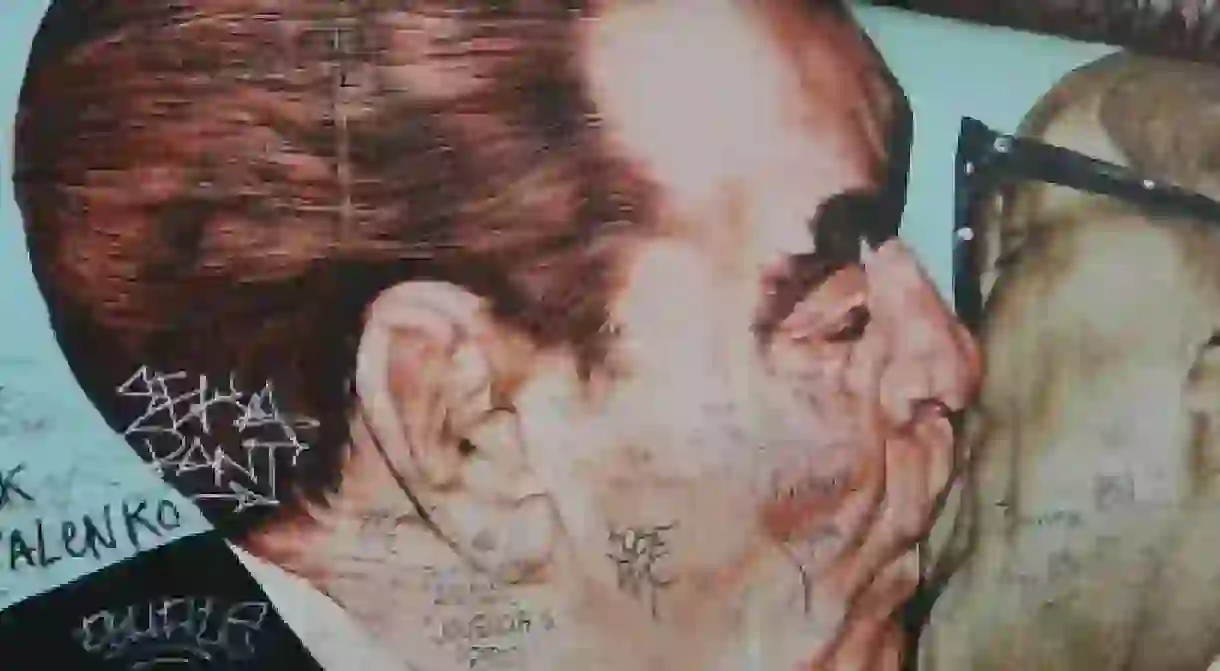Peter Berlin: Berlin's Most Contested Icon

For Peter Berlin, art is life and life is art. He has been called both “the Bettie Page of beefcake” and “the Greta Garbo of gay porn” as a definitive gay sex icon of the 1970s and 1980s. For many, he brought artistic legitimacy to gay erotica with his artfully composed self-portraits.

Peter Berlin was photographed by the likes of Robert Mapplethorpe and Andy Warhol, and painted by Tom of Finland, who consolidated the fetishized male into a sexual genre. Later, after losing most of his closest friends to AIDS, he retreated to become a self-professed recluse. He emerged from the shadows in 2005 with the release of Tushinski’s documentary, That Man: Peter Berlin.
Armed with tight pants, a highly-defined crotch, and a Dutch page boy haircut, Peter Berlin walked the streets of Berlin, London, Rome, and later San Francisco, searching for “contact.” “Before I was even Peter Berlin, I was just trying to have a good time and I looked for contact, but in my case only male contact for sex. And that was what I was occupied with. I was not interested in politics. I was not interested in a career. I was not interested in money. I was interested in having a good time. And I gave myself a very good time, I was just looking for that.”

Peter Berlin grew up in Berlin in the 1940s and 1950s. He studied photography and his first job was working for the fashion photography journal, VIP Shaukel. This “ordinary life,” however, did not last long. A Dorian Gray-type character, Berlin once caught sight of his own reflection in a shop window in Paris; mistaking his own face for that of another and believed he had found true love.
In a way he had, as his life’s work became the creation of a corpus of imagery celebrating and indulging his own beauty. Although never his intention, he transformed gay erotica into an art form, creating images that spoke to an audience wider than just the gay world. His constant arousal stimulates a tangible energy – in the process of seducing himself he seduces the viewer. In a paradox of creation, his images do not speak of self-obsession or arrogance, but of confidence and honesty.
“When I was Peter Berlin I felt really good about myself and that maybe comes across in my photographs. The photographs are very real, they are not staged – they are not faked. And maybe that’s where I make a difference with all the other guys. I am just honest and honesty sort of transcends in everything else and that’s why my name is still there because there’s an honest person with a sort of look at that time and he did what he did and he did it well and there it is.”

After moving to San Francisco in the early 1970s, Berlin starred in two films that are now cult porn classics, Nights in Black Leather (1972) and That Boy (1974). These films put him on the map. While his photographs made him a character, his films made him an icon. In an honest form of self-representation, this visual solidification of pleasure was the result of a life’s trajectory, chasing the “contact.”
“It just happened. My life happened, it was not me having a vision, when I started to photograph myself that’s how it started. A friend said, ‘Oh Peter maybe you should just show it’ and he had a gallery in Berlin and he put it on the wall and that’s where it started to be public. And then of course I made two films because I met this guy in San Francisco and he had a camera, and he said you know let’s make a porno. Because that’s the only thing I was so obsessed with: sex.”
The man that is Peter Berlin, now 72, lives in San Francisco. He speaks of Peter Berlin in the third person, as an entity tied solidly to the past, frozen in time by virtue of his photographs and films. When he answers the phone he pretends to be Peter Berlin’s assistant, claiming that the man I’m after is occupied in a meeting with his accountant. I don’t understand this joke until after our chat: the absurdity of someone like Peter Berlin grounding himself with something as banal as an accountant.

Today, Peter, whose last name remains anonymous, spends his time at home, contemplating and cleaning, distancing himself from a world that he finds humorous yet tragic.













